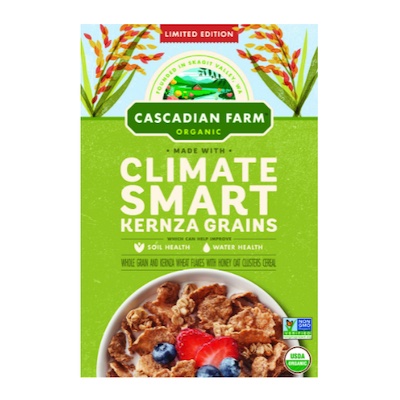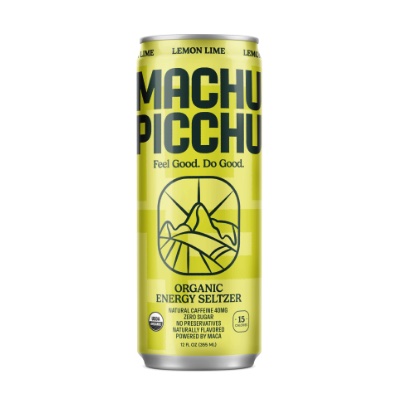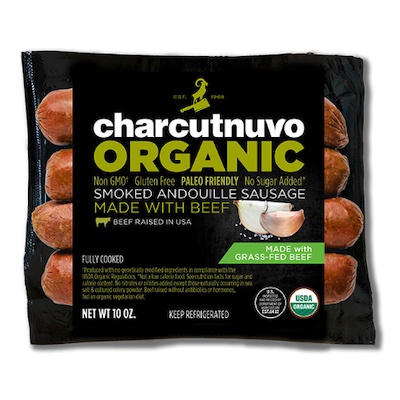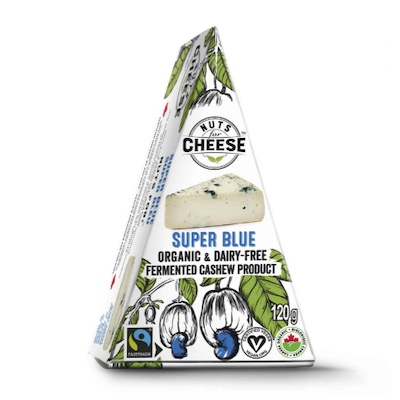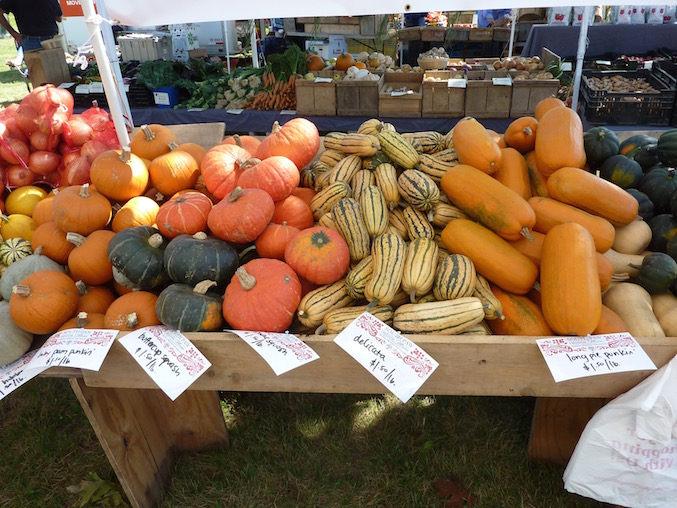
Organic Suppliers Discuss What's Ahead in 2022
If you have been enjoying Organic Insider, you can support our work by sharing this email with your colleagues and asking them to subscribe. Thank you so much and we are very grateful to have you as a reader.
In today’s newsletter, we reached out to a handful of organic suppliers with the following question.
As it relates to organic, what is going to happen in 2022?
—–
Gerard Versteegh
President of Tradin Organic
In 2022, I expect that the climate impact of food production will be a main topic in the organic industry, and everything will revolve around it. Regenerative agriculture will expand further, and more companies and organizations will join the Regenerative Organic Certified movement. Additionally, the plant-based trend will also continue to grow. As a result, the companies that develop plant-based products will thrive this year. In regards to COVID, I believe that immune-boosting ingredients will remain in high demand.
Beau Guthrie and Erin Sojourner
Co-CEO and VP of Strategy + Innovation at HB Specialty Foods
We see a big shift taking place in 2022 in regards to how organic brands and manufacturers will be treating their workers. These workers were recently identified as “essential”, but as the mid-2021 reports examining The Great Resignation uncover, these workers were not always treated as “essential.”
With the rapidly changing labor market, companies are now having to create workplaces that employees value not only for their monetary compensation but for the overall work experience. We have seen wages increase significantly as of late, but for many small to mid-sized companies, that will not be sustainable. Employers need to find ways to better understand what is important to their teams. They need to find ways to open up a dialogue at all levels and really show they care. We have been doing this at HB through “Open Space” events, lots of surveys and just talking to people, all with the goal of co-creating core values to align all departments, closing the gap between our production and office employees.
Jeff Van Pevenage
President & CEO of Columbia Grain International
Pandemic shutdowns slowed the growth of organic ingredients production, causing supplies to tighten. However, organic acreage should begin to expand in 2022, and the largest percent increase in field crops will come from pulses. This is mostly from an increase in organic dry beans and lentils grown in Montana, which we’ve seen firsthand.
Given ideal weather conditions, we will see more production, more interest and more foods developed that utilize organic ingredients and whole foods, as the popularity and continued growth of the organic industry in 2022 will be motivated by a younger consumer demographic. Over 35% of Millennials and the Gen X population consume organic products.
Lastly, we predict the implementation of more rigorous standards for organic certification in the United States. The USDA’s National Organic Program is strengthening enforcement and significantly updating USDA organic regulations to boost enforcement and oversight.
Joe Ennen
CEO of SunOpta
In 2022, organic loyalists will remain committed to health and wellness, purchasing and preparing organic food for their families. With ongoing supply chain challenges, it is now more important than ever for manufacturers to work closely with farmers. It’s time for nimble innovation, including new applications and formats.
Jason Freeman
CEO & Founder of Farmer Direct Organic
In 2022, I think a refocus on soil and the centrality of organic family farms — as the stewards of this soil — is going to happen. This is being represented by two things: the launch of a plethora of new Regenerative Organic Certified packaged food products and the rise of the Real Organic Project.
Both of these initiatives were catalyzed, at least in part, by the allowance of soil-less farming (hydroponics) into the USDA’s National Organic Program standard. This allowance has foundationally shaken the integrity of the organic seal, and the USDA has taken a major step backward.
In the year ahead, a significant number of consumers are going to become soil allies, especially young people.
JP Tournoy
CEO of Ciranda
Inflation will have a real impact on the purchasing power of consumers, which could moderate growth in 2022 by reducing trial and use of organic foods. Supply chain challenges, on the other hand, will pressure smaller producers who rely on export markets as a source of income and growth. As a result, it will be critical for brands to source from companies that maintain strong relationships with their producers in order to maintain supply.
The good news is that the fundamentals supporting organic remain stronger than ever, especially with Millennials who have an affinity for both personal wellness and planetary health. To that end, 2022 will be about transparency throughout the entire supply chain — to ensure the authenticity of organic foods, to understand its role in human rights and to measure its impact on areas of growing concern, such as soil health.
Rodrigo Bedoya
Co-Founder of La Grama
Organic ingredients with immunity-boosting qualities are here to stay and will continue to grow.
With organic expanding beyond a niche market, a business model based on high production and low costs has taken too much out of the organic industry, diluting its integrity and making it a victim of its own success. That will lead to the growth of stricter certifications that sit on top of USDA organic, such as Biodynamic or Regenerative Organic Certified.
In the year ahead, more voices will also be talking about true cost accounting and the positive cost of real organic food. Lastly, as the global transportation crisis continues to disrupt supply chains, it will be vital for organic companies to have very skilled people in logistics.
 |
With gratitude, 
Max Goldberg, Founder |
Quick Hits
* The new GMO-labeling rules — as we wrote about a few weeks ago — went into effect this past Saturday.
* As droughts intensify, this Utah family farm is ditching the Monsanto way.
* Us Weekly gives its top picks for Sakara.
* Rodale Institute just announced its Certified Advisor program, which certifies agricultural service providers to offer organic transition assistance.
* Daily Harvest has launched Harvest Bakes, ready-to-bake meals and shareable sides.
* Demand is booming for “wellness walls.”
* NFL Hall of Famer Troy Aikman is taking on Big Beer with EIGHT, a light lager made with organic grains.
* Teeccino just introduced a caffeine-free Wellness Box.
* Chipotle CEO Brian Niccol on America’s farming crisis.
* If your sustainable product contains toxic PFAS, you might be facing a lawsuit soon.
New Organic Products
Kernza Flakes Cereal from Cascadian Farms
Exclusively available at Whole Foods Market nationwide -- for a limited time -- is organic Kernza flakes cereal with honey oat clusters from Cascadian Farm. A cousin of wheat and a perennial crop, Kernza has roots that can extend 10 feet or more beneath the soil surface, where they deliver atmospheric carbon to the soil and efficiently take up nutrients and water.Energy Seltzers from Machu Picchu
One of 2022's most eagerly anticipated new organic beverage brands is Machu Picchu. Launched by Bernardo Paiva, former CEO of multi-billion dollar Brazilian beverage brand AmBev and former head of sales for AB-InBev, and Daniel Scharff, founder of Startup CPG, the company will be coming out with organic energy and zero-sugar seltzers.Paleo Beef Andouille Sausage from Charcutnuvo
Charcutnuvo's organic beef Andouille sausage takes the traditional French sausage and makes it Paleo-friendly. No sugar added, gluten-free and made from beef raised in the U.S., the sausage also contains cayenne and crushed red pepper flakes to provide a good amount of heat. Distribution just expanded to the East Coast with KeHE.Plant-Based Super "Blue" Cheese from Nuts for Cheese
Made with cashews, quinoa rejuvelac, chickpea miso and fermented oregano extract, the organic, plant-based super "blue" cheese from Nuts for Cheese gets its marble color from spirulina. Dairy-free and containing no starches, no gums and no fillers, it is available at retailers throughout the U.S. and Canada.
Weekly News Summaries
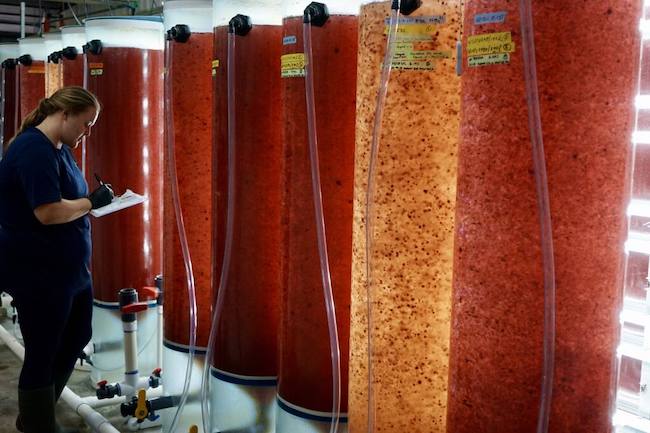

To Fight Climate Change, Straus Family Creamery puts Cows on Seaweed Diet
By Susan Wood
In a 50-day trial last year, cows fed red seaweed showed a methane reduction of up to 90%.

How Biotech Crops Can Crash -- and Still Never Fail
By Aniket Aga and Maywa Montenegro de Wit
The U.N. Food Systems Summit put biotechnology at center stage, although agroecological innovations offer greater promise for sustainability.

Organic Dairy "Factory Farms" and the Plight of the Small Farmer
By Murray Carpenter
The New York Times finally takes a look at the perilous road ahead for small organic dairy farmers.
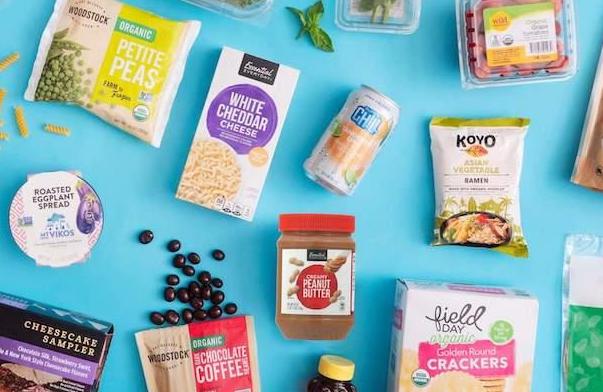

UNFI Readies its Own Brands for a Digital Launch
By Russell Redman 1
UNFI has enlisted a pair of digital commerce platforms to ready its thousands of private-label products for the virtual shelf.

German Agriculture Minister Calls for Higher Food Prices
By Zoe Schneeweiss
Germany's new agriculture minister said that "junk prices" drive "farms into ruin, prevent more animal welfare, promote the extinction of species and pollute the climate."

At an Annual Sustainability Gathering, Big Ag Describes its Efforts to Control the Narrative
By Lisa Held
At the Sustainable Ag Summit, industry leaders paid more attention to an ‘anti-meat agenda’ than the climate crisis.
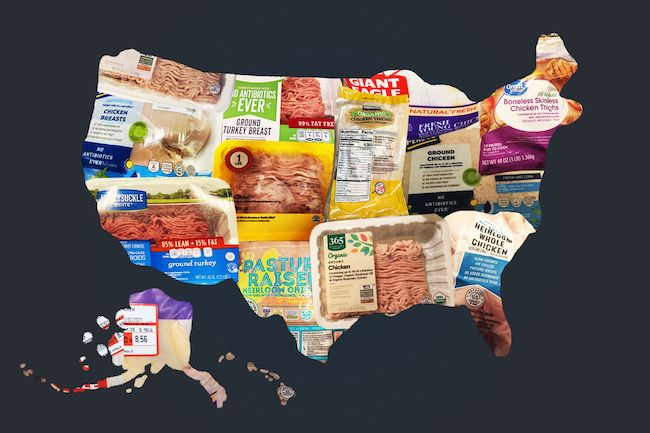

Your Free-Range Organic Chicken May Have Been Processed at a Large Industrial Poultry Plant
By Andrea Suozzo, Maryam Jameel, Michael Grabell and Bernice Yeung
This user-submission study showed that organic chicken may come from plants with high salmonella rates.

France Bans Plastic Packaging for Fruit and Vegetables
More than a third of fruit and vegetable products in France are thought to be sold in plastic wrapping, and government officials believe that the ban could prevent a billion items of single-use plastics from being used every year.
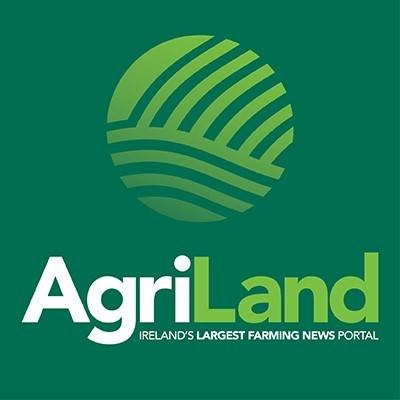
New EU Organic Legislation Now in Effect
By Bernie Commins
On January 1st, new organic rules in the EU went into effect, with the goal of ensuring fair competition for farmers.
Want to share this newsletter on social media? You can use this link: Newsletter Link
The material in this newsletter is copyrighted and may be reprinted by permission only. All requests must be in writing. Please use our contact form to request republication rights.
Newsletter Archive
Quick Hits
* The new GMO-labeling rules — as we wrote about a few weeks ago — went into effect this past Saturday.
* As droughts intensify, this Utah family farm is ditching the Monsanto way.
* Us Weekly gives its top picks for Sakara.
* Rodale Institute just announced its Certified Advisor program, which certifies agricultural service providers to offer organic transition assistance.
* Daily Harvest has launched Harvest Bakes, ready-to-bake meals and shareable sides.
* Demand is booming for “wellness walls.”
* NFL Hall of Famer Troy Aikman is taking on Big Beer with EIGHT, a light lager made with organic grains.
* Teeccino just introduced a caffeine-free Wellness Box.
* Chipotle CEO Brian Niccol on America’s farming crisis.
* If your sustainable product contains toxic PFAS, you might be facing a lawsuit soon.
